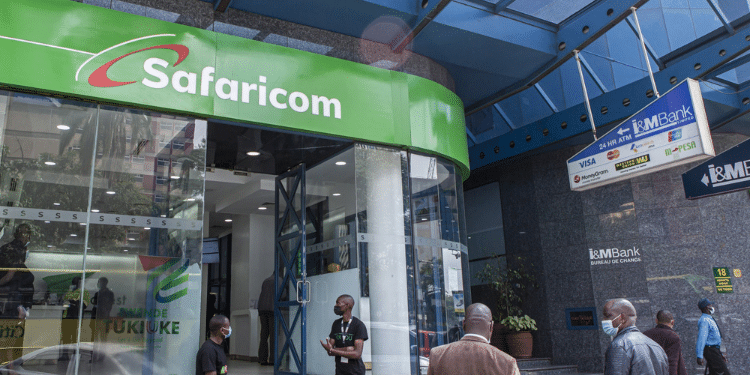The Nigerian Police Force is currently investigating a significant security breach involving Flutterwave, a leading African payment processing platform. This breach resulted in unauthorised transactions worth approximately N21.2 billion ($21.2 million).
The Incident and Its Impact
In October 2023, a technical glitch exploited by malicious actors led to 9,633 erroneous transactions affecting 814 point-of-sale merchants. To mitigate further damage, Flutterwave requested a hold on accounts at Wema Bank and other financial institutions.
Legal Action and Investigations
The Nigerian Police Force has taken swift action, arresting individuals suspected of exploiting the vulnerability and transferring large sums of money to friends and relatives.
The authorities are now seeking a court order to freeze accounts across multiple banks, including Polaris Bank, Stanbic IBTC Holdings, and Standard Chartered Bank.
This move aims to recover the stolen funds and prevent further misuse. While the banks initially resisted the request for transaction reversals, the ongoing investigation and legal proceedings could force them to comply with the court’s orders.
READ ALSO:
Flutterwave Partners with EFCC to Combat Cybercrime in Nigeria
A Tarnished Reputation
The recent arrests and previous security breaches have undoubtedly tarnished Flutterwave’s reputation. As a prominent player in the Nigerian fintech landscape, the company is expected to maintain the highest standards of security.
However, these incidents have raised questions about its ability to safeguard sensitive customer data and prevent fraudulent activities.
The Impact on the Fintech Industry
The challenges faced by Flutterwave highlight the growing threat of cybercrime in the fintech industry. As digital transactions become increasingly popular, it is wise for fintech companies to invest in robust security measures to protect their customers and their businesses.
To address these challenges, fintech companies should prioritise:
- Strong Cybersecurity Infrastructure: Implementing advanced security solutions to safeguard sensitive data.
- Regular Security Audits: Conducting regular security audits to identify and address vulnerabilities.
- Employee Training: Educating employees about cybersecurity best practices to prevent human error.
- Real-time Monitoring: Utilising advanced monitoring tools to detect and respond to threats promptly.
- Customer Education: Empowering customers to recognise and avoid phishing attacks and other cyber threats.
By taking these steps, fintech companies can help build a more secure and resilient digital ecosystem.
Flutterwave, a prominent African fintech company, has encountered a series of setbacks in recent times, raising concerns about its operations and corporate governance.
A Series of Challenges
- Unauthorised Transfers in Nigeria: In February 2023, Flutterwave reported a significant loss of ₦2.9 billion due to unauthorised transfers. The company initiated legal proceedings to recover the stolen funds, including freezing accounts across multiple financial institutions. However, a Lagos court later ordered the unfreezing of certain accounts, hindering the recovery process.
- Freezing of Accounts in Kenya: In July 2022, a Kenyan High Court froze accounts holding over 6.2 billion Kenyan shillings belonging to Flutterwave, following allegations of money laundering and fraud. While Flutterwave denied these accusations, the incident cast a shadow over the company’s operations in Kenya.
- Departure of Key Finance Executives: In November 2023, three senior finance officials resigned from Flutterwave amid revelations of a 2017 SEC investigation involving the company’s founders. Although Flutterwave claimed it was unaware of any ongoing investigations, the timing of these departures raised questions about the company’s internal governance practices.
The Flutterwave app has become a popular tool for businesses seeking seamless financial transactions in Nigeria and beyond.
With its user-friendly interface, the Flutterwave sign up process is straightforward, enabling businesses to access services such as the Flutterwave payment gateway for secure and efficient online payments.
Despite its innovative contributions to the fintech industry, recent headlines about the Flutterwave scandal have raised concerns among users.
However, the company has reassured customers through its responsive Flutterwave customer care team, emphasising their commitment to resolving issues and maintaining trust.
READ ALSO:
Bank of Uganda Hit by $17 Million Cyber Heist
Many users still rely on services like Send by Flutterwave for transactions, recognising the distinctive Flutterwave Logo as a symbol of modern financial solutions.
For entrepreneurs in Flutterwave Nigeria, the platform remains a key tool for streamlining operations and enhancing customer experiences.
Navigating the Storm
Flutterwave has positioned itself as a leading fintech company in Africa, but these recent challenges have put its reputation and future growth at risk.
The company must address these issues proactively and transparently to regain the trust of its customers, investors, and regulators.
As the fintech industry continues to evolve, it is crucial for companies like Flutterwave to prioritise strong corporate governance, risk management, and compliance. By implementing robust internal controls and ethical business practices, Flutterwave can mitigate future risks and restore its reputation.
The company’s ability to navigate these challenges will be a critical test of its resilience and long-term viability.







Leave a Reply